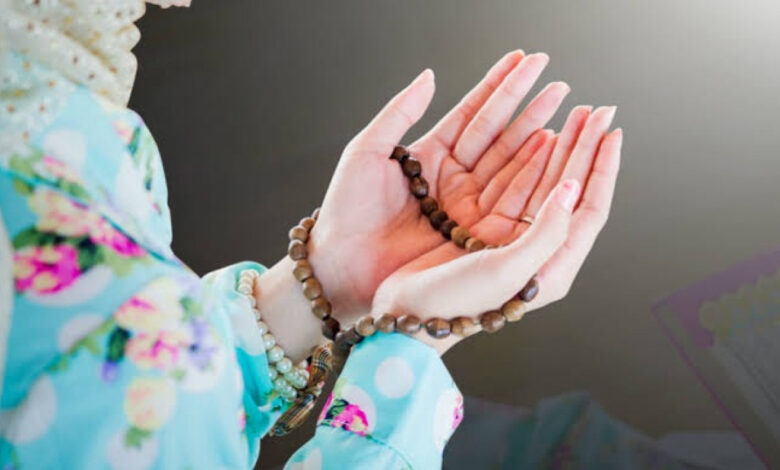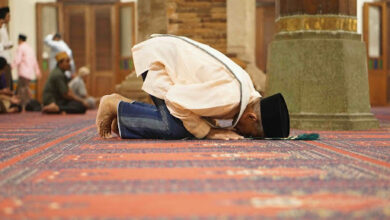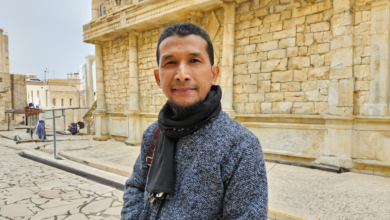This is the Way to Meruqyah Yourself

Ustadz, how do you do ruqyah yourself?
ANSWER:
Bismillah was-shalatu was-salamu 'ala Rasulullah, wa ba'du.
Ruqyah is part of the prayer. It's just that, generally in the form of asking for protection from unwanted interference. Either mental or physical illness.
Ibnul Athir said,
message : message : message
Ruqyah is a prayer for protection, which is recited for people who are sick, such as fever, possession, or other ailments. (an-Nihayah fi Gharib al-Atsar, 2/254)
Therefore, the sentences read in ruqyah are special. While prayer is more general, includes all forms of supplication.
Al-Qarrafi said,
God bless you
Ruqyah is a special pronunciation that is said with the intention of pronouncing it for healing from diseases and all causes that damage. (Aunul Ma'bud, 10/264)
Therefore, the principle of ruqyah is reading verses al-Quran or prayers from the hadith, with the intention to protect ourselves from disease in us, both physical and non-physical. This is where we can distinguish between ruqyah and reading al-Quran normal. Reading al-Quran can be ruqyah, if intended to ruyah.
And the condition of the heart determines the strength of ruqyah. The higher one's resignation when doing ruqyah, the greater the chance to be granted by Allah. Therefore, before doing ruqyah, people need to prepare a good mood. Instill trust in Allah, and increase husnudzan (think well) that Allah will heal him.
What can be done?
There are several manners that you can do when you want to do ruqyah:
[1] Perform ablution beforehand, because when reading the sentence thayibah, it is recommended to be in a state of purity.
[2] Read the verse al-Quran which is often used for ruqyah, with the intention of ruqyah. Like verses of chairs, the last two verses of sura al-Baqarah, or surahs al-Ikhlas, al-Falaq, and an-Nas, or other verses.
[3] You can also use the prayer taught by the Prophet sallallaahu 'alaihi wa sallam.
[4] You can also rub your hands on the limbs that can be reached, or on the limbs that are sick.
[5] Or use water media. The trick, we read the ruqyah verses by bringing a glass of clean water closer to the mouth. After reading, drink water.
[6] Next, put your trust in Allah.
Some Practice Ruqyah yourself
Rasulullah shallallahu 'alaihi wa sallam teaches us some prayers and ruqyah that we can read when we are sick. Among them,
First, prayer when a part of the body hurts.
The method:
[1] Place your hand on the part of your body that hurts
[2] Read “bismillah” 3 times
[3] Continue by reciting the following prayer 7 times,
أَعُوذُ بِعِزَّةِ Allah
(A'uudzu bi 'izzatillahi wa qudratihi min syarri maa ajidu wa uhaadziru)
"I seek refuge with the might of Allah and His power, from the ugliness that I feel and that I worry about."
The argument, from Uthman bin Abil Ash radhiyallahu 'anhu, that he complained of pain in his body to Rasulullah Shallallahu 'alaihi wa sallam. Then Rasulullah Shallallahu 'alaihi wa sallam told him, "Put your hand on the sore spot of your body," then he taught the prayer above. (Narrated by Muslim 5867 and Ibn Hibban 2964)
Second, ruqyah before sleeping. Combine the two palms, then recite the letters al-Ikhlas, al-Falaq and an-Naas, then blow into both palms. Then wipe both palms all over the body that can be reached. Starting from the head, face and front of the body.
Then repeated up to three times.
This is based on a hadith from A'isyah radhiyallahu 'anha, who recounts the habit of the Prophet sallallaahu 'alaihi wa sallam before sleeping. (Narrated by Bukhari 5017 and Muslim 2192).
Third, ruqyah when injured. Take the spit on the fingertips, then place it on the ground, then place this mixture of saliva and soil on the injured part, while reading,
بِسْمِ اللَّهِ تُرْبَةُ أَرْضِنَا بِرِيقَةِ بَعْضِنَا يُشْفَى سَقِيمُنَا بِإِذْنِ رَبِّنَا
(Bismillah, turbatu ardhinaa bi riiqati ba'dhinaa, yusyfaa saqimuna bi idzni rabbinaa..)
"In the name of Allah, the dust of our soil with the spit of some of us, may those who are sick recover from us with the permission of our Lord." (Narrated by Bukhari 5745 & Muslim 5848).
An ounce of prevention is worth a pound of cure
This theory is generally accepted, both in conventional medical science and Nabawi medical science. The Prophet sallallaahu 'alaihi wa sallam taught his people to do more dhikr, to make dhikr routine in every situation, especially every morning and evening.
Many of the prayers and dhikr in the morning and evening are used as a reason to get protection from Allah from every disturbance from visible and invisible creatures. That's why, at these two times, Allah motivates us to do more dhikr. Allah ordered our Prophet Muhammad Shallallahu 'alaihi wa sallam to always istighfar and do a lot of dhikr every morning and evening,
Amen
"Ask forgiveness for your sins and glorify and praise your Lord in the evening and in the morning." (QS. Ghafir: 55).
Allah ordered the Prophet Zakariya to routinely dhikr every morning and evening,
Amen
"Increase in dhikr in the name of your Rabb, and purify Him every evening and morning." (QS. Ali Imran: 41).
Allah also praises those who are diligent in dhikr and pray every morning and evening,
Amen ُ
"Be patient with those who call on their Lord in the morning and evening, hoping for His face..." (QS. Al-Kahf: 28).
Allahu a'lam.
(Answered by Ustadz Very Setiyawan, Lc., S.Pd.I., MH)
#Friends of Migrants want to consult about Islamic religious issues and life issues? Come on, submit the question via WhatsApp message to number +852 52982419.



